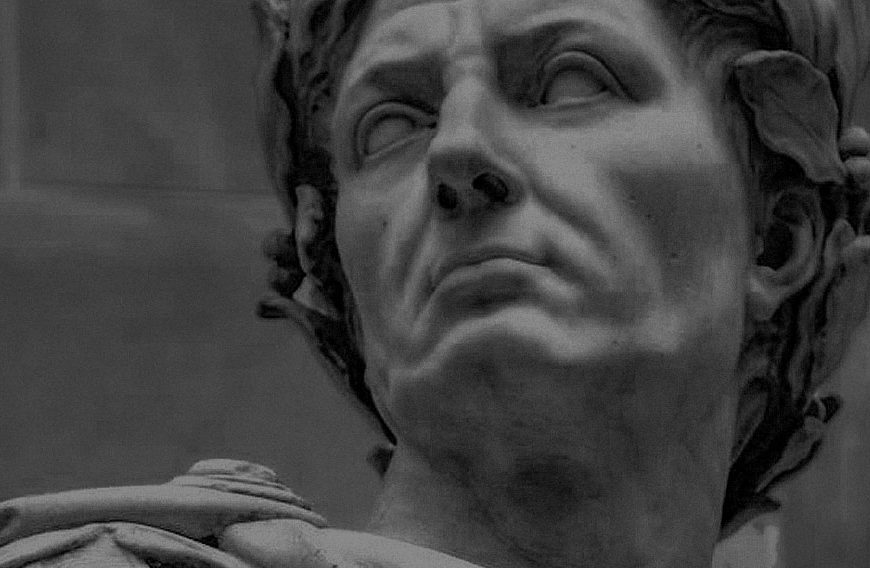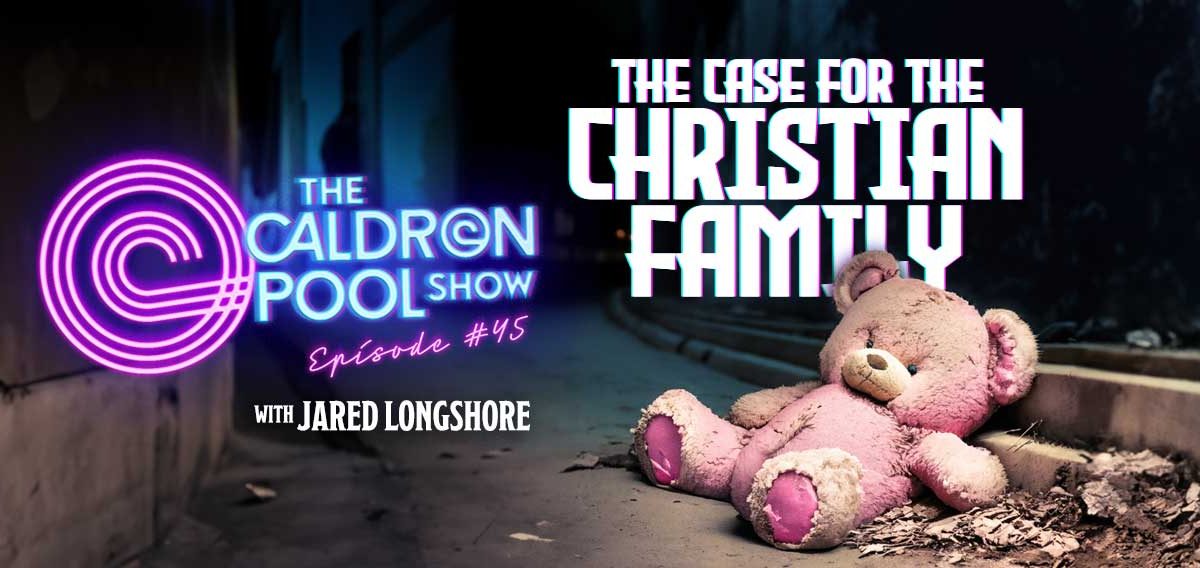In a recent episode of The Political Animals podcast with Jonathan Cole, Michael Bird, New Testament lecturer at Ridley College, claimed that secularism is not only good for society, but it’s also good for Christianity.
Forget grandiose ideas of building “Christian nations.” Bird gets “frustrated” with those who talk of such things. It’s secularism, not Christianity, that will truly protect the people from harm.
So, what exactly is “secularism”? According to Bird, there are various kinds of “secularism,” and “there are different ways of doing secularism.” The secularism of North Korea differs from the secularism of China. The secularism of Turkey differs from the secularism of France. The secularism of the United Kingdom differs from the secularism of the United States.
But what undergirds every secular denomination is the assumption that secularism is not to be thought of as a religious commitment. Rather, secularism is to be regarded as fundamentally religiously neutral ground, where every other religious conviction can be evaluated primarily through an areligious lens.
Secularism, Bird says, is “largely about creating space for people of all faith and none, determining the areas where religion is not allowed to matter, or not allowed to come into the equation, and then defining the areas where religion is immune from government interference and coercion.”
In contrast stands “Christian nationalism,” which Bird describes as a “really bad idea.” The basis of this dismissal is that there are various kinds of Christians, such as Anglicans and Baptists. So, for Bird, the question is, if Christianity, then which Christianity?
Bird explains: “The frustration I have with people who say, ‘We have to be a Christian country,’ I say, ‘Well, which type of Christian do you want? Which type of Christian is going to be hegemonic? Do you want Anglicans to be in charge and forcibly baptising babies of Baptist parents, like we will go into your creches and literally baptise your children in front of you.”
Of course, we might dismiss secularism on the very same basis that Bird dismisses Christian nationalism. If secularism, then which secularism? But apparently, plurality within a system is only a disqualifying characteristic if that system is Christianity.
Instead, Bird argues that secularism is what protects Christians from Christians. It prevents one Christian group from bullying another, so that “you’ll end up with an ironic situation where some Christians will be safer under a more secularised government than they would under a Christian government.”
According to Bird, if the government is secular, then it is religiously neutral, and if it is religiously neutral, then it “can’t force you to worship a certain way.” As such, Bird would have Christians “campaigning for genuine secularity” because it not only protects Christians from Christians, it also “protects [Christians] from the government.” Or so he says.
The problem is that secularism is not an areligious system. It often presents itself as such to claim neutrality, but this is simply a fallacious appeal to ‘middle ground.’ Argumentum ad temperantiam. But secularism is a religion.
As secular humanist, John Dewey, wrote in The Humanist Manifest I:
“Religious humanists regard the universe as self-existing and not created… Humanism asserts that the nature of the universe depicted by modern science makes unacceptable any supernatural or cosmic guarantees of human values… Religion must formulate its hopes and plans in the light of the scientific spirit and method… Man is at last becoming aware that he alone is responsible for the realization of the world of his dreams, that he has within himself the power for its achievement… While this age does owe a vast debt to the traditional religions, it is none the less obvious that any religion that could hope to be synthesizing and dynamic force for today must be shaped for the needs of this age. To establish a religion is a major necessity for the present…”
Thus, P. Andrew Sandlin, president of the Center for Cultural Leadership, writes:
“Secularism is a religion… [It] is the notion, the conviction, the consciousness, that there is no God, or that if there is a God, He is not involved in this world. We are left to ourselves; we must save ourselves. This is the secular milieu that surrounds us.”
Secularism is not opposed to religion. It’s not areligious or religiously neutral. It’s simply opposed to the religion that affirms the sovereignty of God over man. As such, within secularism there is a theology that must be maintained and a morality that must be upheld.
It is a system that replaces God with man, and the church with the state. And this has consistently been the recipe for the worst horrors inflicted on the world at the hands of fellow man. As Lee Duigon, contributing editor for the Faith for All Life magazine, notes:
“If there’s one thing the history of the twentieth century teaches us, it’s that the deification of man and the state buys us one thing – a one way ticket to the Gulag.”
When the “secular” state refuses to acknowledge an authority above itself, it becomes an authority to itself. Do away with Christianity as the basis of government and law and you do away with the notion that governing authorities ought to act within the bounds and limits prescribed in the Bible.
What we end up with is a society governed not by objective truth, but by the arbitrary whim of those in power, legislating whatever they will without external moral restraint or higher accountability.
As R.J. Rushdoony wrote:
“Tyranny… was in its origin secularism, a rule found on man-made laws. This secularism is the religion of humanity, the most oppressive, dangerous, and persecuting of all cults, because it has no law beyond itself as a check to its lust for power.”
Peter Hitchens, in his book The Rage Against God, made a similar observation. Hitchens maintained that there is only one reliable force standing in the way of the power of the strong over the weak, and it’s not secularism, as Bird claims. It’s Christianity.
In Hitchens’ words:
“In an age of power-worship, the Christian religion has become the principal obstacle to the desire of earthly utopians for absolute power.”
The religion of secularism is no safeguard against tyranny. Much the opposite, in fact. It paves the way for the tyrant who would have the people recognise no king but Caesar and no law above the state’s decree. Sure, you can have your religion, provided you burn the incense in subjection to the established religion of the state. Are we not witnessing that inevitable outcome today?
Now, don’t hear me wrong. We’re not talking about a conflation of church and state, despite what Bird has implied. It isn’t an accurate portrayal of Christian nationalism to suggest that theocracy (God’s rule) is the same thing as ecclesiocracy (priestly rule). We can separate church and state, and we should. But what we can’t separate is religion from state.
Religion is inescapable, and secularism is no exception. As soon as you define areas where God is “not allowed to matter, or not allowed to come into the equation,” as soon as you judge an action or behaviour as moral or immoral, good or bad, you are exercising a religious conviction. You are presupposing a belief about God (whether or not He exists), how He relates to the world (or how He doesn’t), how we are to respond to Him (or not respond to Him). You don’t need an explicit reference to “god” for it to be a religious commitment, you only need to finish the sentence, “God is…”
The contrast made between secularism and theocracy fails to recognise the fact that every system is governed by a reigning theos. This includes secularism. This means that even secularism is a form of theocracy. To identify the god of the system, you only need to locate that system’s source of law and highest court of appeals, as Cornelius Van Til noted. As such, it is not whether we implement a theocracy, but which theocracy will be implemented.
Whether it is the false gods of secularism or King Jesus, the reigning theos will, by necessity, limit the liberties of all competing systems to some extent. This is unavoidable. Absolute freedom is only possible in a lawless society. So, whether it is secularism or Christianity taking precedence, every alternative will be restrained at the point in which it conflicts with what the reigning system deems “good” for the wider society.
That’s why we don’t allow people to execute apostates, marry as many women as they want, or sacrifice humans to secure prosperity. It’s not a “criticism” unique to Christianity. It’s a question of how we define what is good, just, and loving. Is it God, or should the collective be free to do whatever is right in their own eyes?
In the end, only one religion can take precedence over all others to promote justice and social harmony. The religion of secularism has sought to take that position from Christianity, and it has succeeded, even among Christians, by presenting itself as religiously impartial – as though that were a virtue.
It’s not. It’s naivety, and it’s falling for what has been dubbed, “the myth of neutrality.” This is the anti-Christian notion that the universe consists of meaningless brute facts, that are disconnected from God, and therefore, neutral.
In short, it is to say that Jesus may be Lord, but his Lordship is limited to spiritual matters. It is to suggest that there are areas outside of his domain and authority over which he has no immediate claim. It is to denounce the fundamental truth that all authority on earth has been given over to King Jesus (Matt. 28:18).
As Rushdoony put it:
“Because God is the Lord and Creator of all things, there is no sphere of life and thought outside His jurisdiction, government, and law. To hold that there is denies God and affirms polytheism. And this is precisely what all too many theologians have done.”
Ultimately, you can’t affirm that secularism protects people from harm unless you abandon God’s definition – the only definition – of what constitutes love and justice. You can’t abandon God’s definition of love and justice without embracing an inferior, harmful, and alien source of truth. This is why we must prefer a “Christian nation” to the feigned neutrality of the religion of secularism.
If, as the Apostle Paul affirmed, the law is holy, and the commandment is holy and righteous and good (Rom. 7:12), then every alternative will be less than that. Less loving, less just, less good. Are we really loving our neighbour by giving them less than what God has given us?
There is no humble or harmless opposition to God’s law. Either God defines love and justice or else we imagine that we do. But God has not given us the right to define these things apart from Him. If all authority on earth belongs to him (Matt. 28:18), then he is the head, not just of the church, but of the state (Col. 2:10). And it is on this basis that he says: “Now therefore, O kings, be wise; be warned, O rulers of the earth. Serve the LORD with fear, and rejoice with trembling. Kiss the Son, lest he be angry, and you perish in the way, for his wrath is quickly kindled. Blessed are all who take refuge in him.” (Ps. 2:10-12)
There is no blessing and no refuge in any alternative.




















